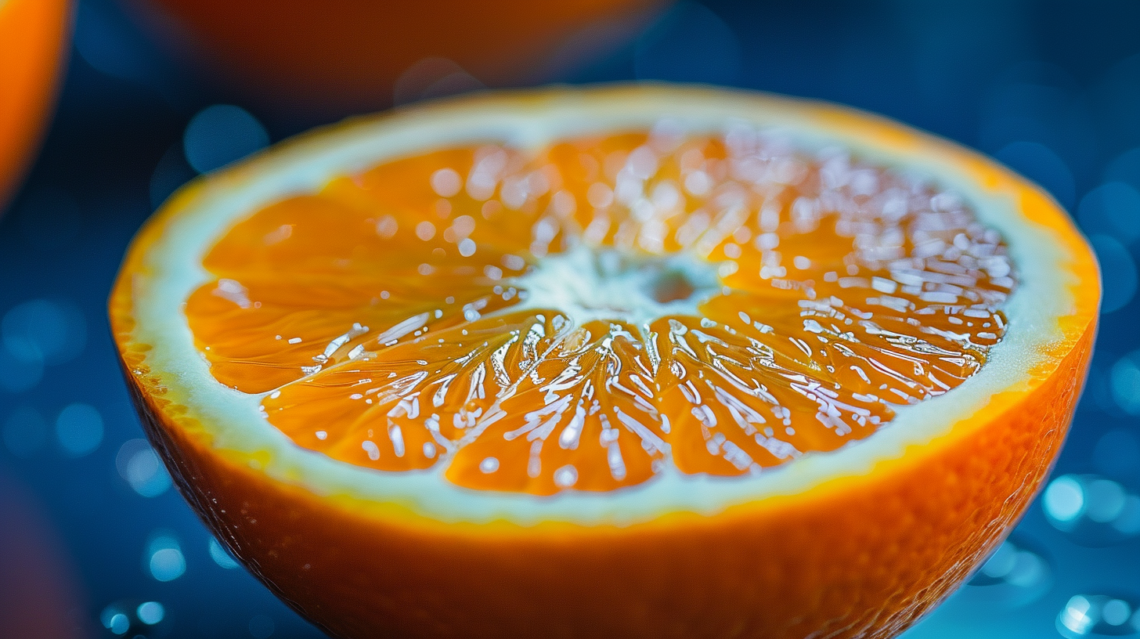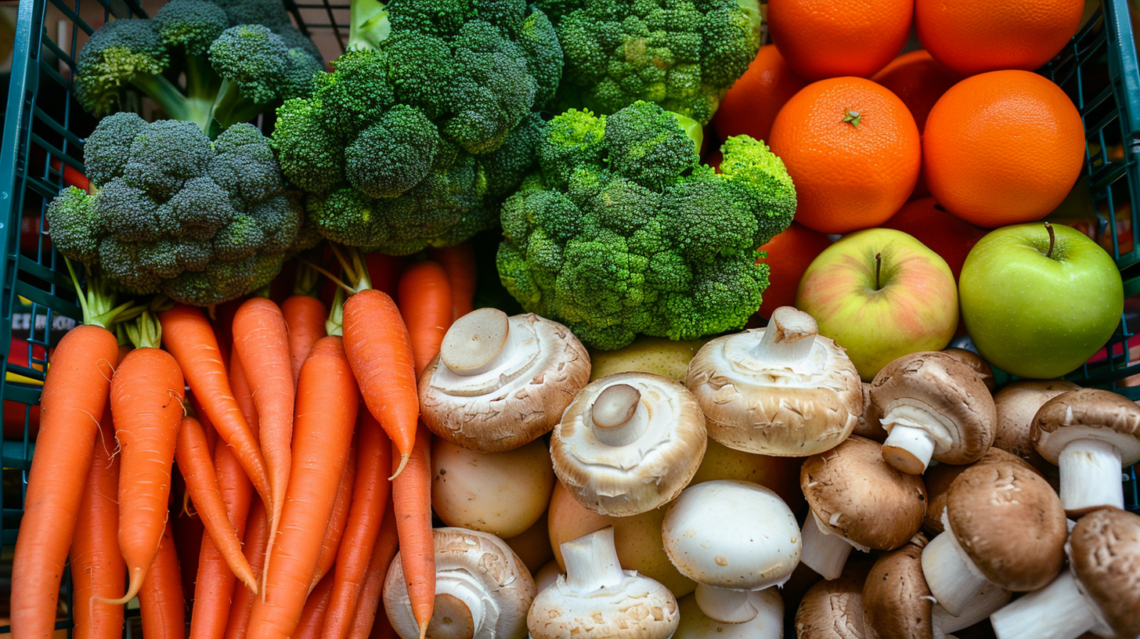Diet
-
Food’s Impact on the Brain
In order to stay as healthy as we can, we need to ensure that we’re always making healthy choices and be conscious of how we treat our bodies from both a mental and physical standpoint. This can mean doing things like getting regular exercise, getting adequate amounts of sleep each night, avoiding bad habits (such as smoking tobacco or drinking alcohol in excess), as well as having a diet that is rich in essential nutrients – including vitamins and minerals, proteins, healthy carbohydrates and fats, and water. Eating well is fundamental for our overall health and wellbeing, as the healthier foods we eat, the less likely we are to develop…
-
Vitamin C: A Key Player in Immunity and Beyond
Vitamin C is often the go-to vitamin for people suffering from a common cold or flu. But does it actually stop illness all together? The short answer is no. While Vitamin C can’t stop a cold in its tracks, it can shorten the symptoms of a common cold, the duration, as well as decrease the frequency in which you get colds – but only if you consume Vitamin C on a regular basis. Think of it as an immune booster rather than a cure. Common colds aren’t all Vitamin C is good for, however. It’s also beneficial for the growth and repair of skin, bones, teeth and other tissue, can…
-
Developing Sustainable Healthy Eating Habits
Depending on the foods you eat, your health can be impacted in both negative and positive ways. The unhealthier the foods are that you eat, the unhealthier you will feel. Whereas the healthier foods you eat, the healthier you will feel. Eating healthy doesn’t just mean making changes in the foods you buy at the grocery store. In some instances, it also means that you may need to make some changes to your environment. For example, many offices, schools and other public places have vending machines or cafeterias. While this might seem like an easier alternative to making and packing your own lunch, snacks or other meals, the foods that…
-
Decaf Coffee: Exploring Its Benefits
Caffeine, a natural stimulant that is found in coffee, tea, and certain soft drinks, is known for its ability to enhance alertness and provide a temporary boost in energy. However, despite its benefits, caffeine can also pose several risks, particularly to those with certain medical conditions or sensitivities. This has led some individuals to make the switch to decaffeinated coffee as a viable alternative that retains the flavour and ritual of coffee drinking, but without the associated risks of caffeine. One of the primary health reasons for switching to decaffeinated coffee is the management of cardiovascular conditions. Caffeine has been shown to cause an increase in heart rate and blood…
-
Healthy Snack Options for Sustained Energy
Where the urgency of work demands and school activities often lead us to neglect our dietary habits, it is essential to consider the quality of the snacks that we consume. Opting for nutritious, low-carbohydrate options not only aligns with a health-conscious lifestyle, but also nourishes our bodies with steady, enduring energy. These snacks are pivotal, particularly when you need an extra surge of vitality to navigate your day or simply wish to maintain a balanced energy level without succumbing to the lethargic dips that high-carb and sugary treats often produce. The Importance of Choosing Low-Carb Snacks The primary advantage of low-carbohydrate snacking lies in its ability to stabilize blood sugar…
-
Identifying Preservatives in Foods
When it comes to nutritional awareness, it is crucial to recognize that many of the food items we regularly consume are laden with preservatives; often, these are ingested without our knowledge as we might not habitually scrutinize food labels to ascertain the precise constituents we are introducing into our bodies. When you do take the time to examine these labels and find yourself baffled by the complex names that seem more chemical than food, it’s a strong indicator that the item may be packed with preservatives and potentially harmful additives. Preservatives serve as additives that are intentionally included in food products to extend their shelf life. Among the more commonly…
-
The Sugar-Behaviour Link in Children
The discussion about the impact of sugar on children’s behaviour, mood, and energy levels is both perennial and pertinent. While the lure of sugary treats is undeniable among the younger demographic, the consequences of their consumption extend beyond mere physical health, influencing aspects of mental well-being and behavioural patterns. This exploration seeks to shed light on the multifaceted effects of sugar intake on children, offering insights into the physiological and psychological ramifications, with an emphasis on fostering a balanced approach to nutrition that parents can realistically implement. The consumption of sugar, particularly in high quantities, has been shown to precipitate a cascade of physiological reactions within the body, leading to…
-
Tackling Kids’ Picky Eating
Picky eating is a developmental stage that many children encounter, often leading to moments of frustration and concern among parents who are eager to ensure a balanced and nutritious diet for their offspring. Understanding that picky eating can be attributed to a myriad of factors, including but not limited to a burgeoning desire for autonomy, an inherently sensitive palate more attuned to the nuances of taste and texture, or merely a transient phase of exploration and discovery, is paramount. This selective approach to food consumption necessitates a nuanced understanding and a strategic response from caregivers, aimed at fostering an environment where fruits and vegetables are not merely tolerated but embraced…
-
How Nutrition Fuels Our Bodies
When it comes to sustaining a healthy lifestyle, the importance of nutrition cannot be overstated. The foods we consume play a pivotal role in providing the energy necessary for our daily activities, including exercise and other physical pursuits. At its core, nutrition is about nourishing the body with the essential nutrients it needs to function optimally, supporting not just our physical well-being but our mental health as well. This article aims to demystify how our dietary choices fuel our bodies and enable us to engage in physical activities, all presented in a manner that’s accessible and easy to understand. The human body is akin to a sophisticated engine that requires…
-
Water: The Quintessential Quencher
Water emerges not merely as a fundamental necessity but as the quintessential quencher that underpins the very essence of life. From its basic role in quenching thirst and preventing dehydration to its myriad health benefits, water’s significance in our daily lives cannot be overstated. This article delves into the multifaceted benefits of water, emphasizing its crucial importance, especially in relation to exercise, and explores the reasons why this simple yet vital substance is indispensable for our well-being. At its core, water is the lifeline that sustains all forms of life. Its role in quenching thirst transcends mere satisfaction; it is an essential mechanism that maintains homeostasis within the body, regulating…









